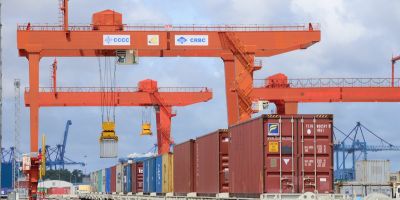Posted in Investment Guide
The Government has taken significant measures and reforms to liberalize its economy and encourage both foreign and domestic local private investment to realize National Development Vision 2025. The vision spells out national long-term development goals priorities and directions, and aims amongst other things to transform Tanzania from a low-productivity agriculture economy to semi-industrialized highly productive agriculture activities.
Some of the notable reforms in Tanzania since 1986 include, the reduction of the budget deficit, monetary control, liberalization of the trade regime, removal of most price controls, eased restrictions on the marketing of food crops, freed interest rates, and initiated a restructuring of the financial sector. The economic reforms implemented by the government have greatly boosted a better investment climate by encouraging private sector participation and attracting FDI.
On account of its political structure – Mainland Tanzania and Zanzibar – Tanzania has two investment regimes. As a result, the country has two investment policies, namely: The National Investment Promotion Policy (1996) and the Zanzibar Investment Policy (2004). It also has two regulatory frameworks which are National Investment Act 1997 for mainland Tanzania and Zanzibar Investment and Protection Act 2004 as well as two investment promotion agencies Tanzania investment Centre for mainland Tanzania and Zanzibar Investment Promotion Authority for Zanzibar.
The Government is committed to improve business environment for the private sector to operate and stimulate rapid expansion in local and foreign private investment. The investment policies have underscored the need for maximum mobilisation, utilisation of domestic capacity, and the promotion of exports of goods and services.
Policy reforms undertaken since the 1980s have to a great extent contributed to attracting a considerable amount of foreign resources in the form of Foreign Direct Investment (FDI), Official Development Assistance (ODA), and Remittances to argument limited domestic savings and bring with them finance, managerial skills, technology, marketing experience for the development, and to create a transparent legal framework that facilitates the promotion and protection of all investment.
The Tanzania Investment Act (1997), Cap 38 is the principal law guiding investment activities in Mainland Tanzania. Section 4 of the Act established the Tanzania Investment Centre (TIC) which is the principal agency to facilitate, encourage and promote investment. The Centre is under the Ministry of Industry, Trade and Investment. The Ministry of Industry, Trade and Investment is mandated to formulate industrial, trade and investment policies and strategies. The mission is to create an enabling environment for the sustainable development of industry, trade and investment.
The TIC’s mandate includes both investment facilitation and promotion. The functions of the TIC include, but are not limited to, assisting all investors both foreign and local, to obtain all necessary permits, licenses, approvals, consents, authorizations, registrations, and other matters required by law for a person to set up and operate an investment under the One-Stop Centre. The Centre issues certificate of incentives to eligible investors based on the established laws and regulations. The Certificate of Incentives provides investors with a package of fiscal and non-fiscal incentives.
The minimum investment to qualify for and obtain a Certificate of Incentives is USD100,000 for projects that are wholly owned by Tanzanian citizens and USD 500,000 for projects that are wholly owned by foreign investors or a joint venture. Other than this difference in financial thresholds, the Investment Act does not appear to discriminate against foreign investors in favor of domestic investors. Incentive guarantees available to holders of Certificates of Incentives – both foreign and domestic.
In 2014 the government introduced a Strategic Status Investors category which comprises of investors whose investment is above USD 50 million for foreigners and USD 20 million for local investors, the contribution of the project in terms of creating employment opportunities, new and innovative technology to be introduced by the prospective strategic investment project, the extent to which the project brings capacity to manufacture products for experts and the earning of foreign exchange and when the project is located in Special Economic Zones and geographically disadvantaged region.
In order to strengthen and expedite the facilitation of investment services and its image as a “One-Stop Center” Tanzania Investment Centre pulls together under one roof MDAs necessary for investment and investors handling. The agencies that have permanently stationed staff at the TIC include Ministry of Lands, Housing and Human Settlement Development Ministry of Labor, Employment, and Youth Development; Ministry of Industry, Trade and Investment; Tanzania Revenue Authority (TRA); the Immigration Department; Business Registration and Licensing Agency (BRELA); and National Environmental Management Committee (NEMC). Others are Occupational Safety and Health Authority (OSHA); Tanzania Bureau of Standards (TBS); Architectural and Quantitative Registration Board (AQRB); and Tanzania Food and Drugs Authority (TFDA).
To formalize business in Tanzania, one has to register a company with Business Registration and Licensing Agency (BRELA), established by the Executive Agencies Act. 1997 under the Ministry of Industry, Trade and Investment. Investors will also have to obtain a Tax Identification Number (TIN) which currently is the same number as the certificate incorporation/compliance, and other licensing from regulatory authorities depending on the type of business for example tourism, energy, mining etc.
In view of continuing to improve the ease of doing business, the Ministry of Industry, Trade and Investment has come up with a Blue Print for Regulatory Reforms to Improve Business Environment. The Blue Print is aimed to ensure that private sector as an engine of economic inclusive growth operates in a friendly and competitive environment. Tanzania's Investment Environment is governed by other laws affecting facilitation and protection such PPP Act 2014, EPZA and SEZ.
In addition, the Government signed new Bilateral investment agreements (BITs), which are aimed at promoting and protecting new and existing investments. It also signed Double Taxation Treaties (DTTs) with various countries. As of now, the government of Tanzania has already signed BITs with the Governments of Germany, Italy, Finland, South Korea, the Netherlands, United Kingdom, Sweden, Denmark, Canada, Switzerland, Thailand, China, Oman and Kuwait. On the other hand, the Government of Tanzania has entered into DTTs with the Governments of the United Kingdom, Italy, Sweden, Norway, Denmark, Finland, South Korea, Switzerland, Oman, Malaysia, Thailand, Canada, the Netherlands, and Kuwait. Also, Tanzania is a member of Multilateral Investment Guarantee Agency (MIGA), the International Centre for Settlement of Investment Disputes (ICSID) and is signatory to the United Nations Commission on International Trade Law (UNCITRAL).
For more information click here.
Posted in Investment Guide
The government has also taken specific steps to promote investment in the country. Some of these include:
- Establishment of the South Sudan Investment Authority (SSIA);
- Development of investments laws that spell out the investment guidelines in the country;
- Equal treatment and opportunity for local and international investors; and Enactment of specific laws that support investment by making provisions for attractive fiscal regimes, protection of industrial and intellectual property rights, the credible guarantee of legal security and investment stability, repatriation of profits and dividends, custom duties exemptions, as well as reduced red tape and bureaucracy.
The specific investment principles include:
- Policy of non-discrimination:
Foreign investors can invest in and run businesses in any sector in Southern Sudan;
- Guarantees against expropriation:
The government shall not nationalize any enterprise. Further, no investor will be compelled (by law or otherwise) to cede any part of investment capital;
- Protection of Intellectual Property laws:
The government shall protect all intellectual property and rights of all persons and investors. All trademarks, copyrights, patents, etc. will be enforced;
- Access to Public Information:
Investors have open and direct access to all laws and decisions of courts, other adjudicative bodies and to any public information;
- Repatriation of capital, profits and dividends:
Investors have the right to freely repatriate their money in freely convertible currency or dispose of it in any manner they deem fit, subject to tax and other lawful obligations; and
- Dispute Resolution:
Any aggrieved investor has recourse to the courts of Southern Sudan which has jurisdiction over business disputes. Parties to a dispute are also free to specify alternative dispute resolution mechanisms they may agree upon. Any investor in dispute with the Government of South Sudan has recourse to internationally accepted dispute resolutions mechanisms.
For more information click here.










